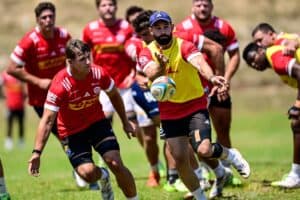The shift in Washington will compound difficulties in striking a deal.

Rival Syrian camps were due in Geneva Wednesday for UN-brokered talks to end the six-year conflict with persistent violence and deadlock over the country’s political future dampening hopes of a breakthrough.
President Bashar al-Assad’s negotiators and opposition delegations were expected to arrive in the Swiss city a day before talks resume following a 10-month hiatus.
The ground has shifted since the last round broke up in April 2016 and the rebels find themselves in a significantly weaker position.
The army has recaptured the rebel bastion of eastern Aleppo and the United States, once staunchly opposed to Assad, has said it is reassessing every aspect of its Syria policy under President Donald Trump.
But several of the toughest issues remain similar to a year ago.
– ‘Bloody message’ –
The opposition quit the last round in protest at escalating bloodshed and on Thursday warned that ceasefire violations were once again a major hurdle.
“The obstacles are clear and one of them is that there is no advance in consolidating the ceasefire,” said Yehya Aridi, an advisor to the main opposition High Negotiations Committee (HNC).
The latest truce on December 30 was brokered by opposition supporter Turkey and regime-backer Russia ahead of during separate negotiations that also involved Iran in Kazakhstan.
The deal has reduced violence but fighting flared again this week including a government bombing campaign on rebel territory around Damascus.
The HNC charged that Assad was trying to send “a bloody message” before the talks resume.
– Focus on ‘political transition’ –
A bitter dispute over Assad’s fate also continues to divide the camps.
The HNC has insisted he must leave office as part of any deal, while Damascus has said the president’s future is not open for negotiation.
For the government, “it is Assad or no one at all,” Aridi said.
“This rule saying ‘everything or nothing’ hampers any chance or opportunity for a political solution.”
UN mediator Staffan de Mistura’s office on Tuesday asserted that the talks remain focused on “political transition”.
For the UN, that term can include a broad range of scenarios but the opposition sees it as implying Assad’s removal.
Forcing the Syrian president from power had been the stated goal of Barack Obama’s administration but Trump’s election has muddied the US stance and the opposition’s negotiating position.
Trump has said that defeating the Islamic State group is Washington’s top priority in the region and that the US would be narrowly focused on American interests.
The shift in Washington will compound difficulties in striking a deal, HNC spokesman Ahmed Ramadan told AFP Wednesday.
“President Trump’s position on Syria and the Middle East is not yet clear, and therefore the position of the international community seems unclear regarding how eager the regional parties are to find a fair political solution for Syria,” he said.
© Agence France-Presse






